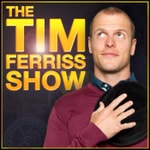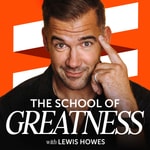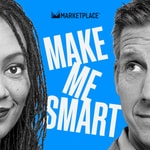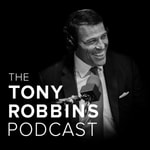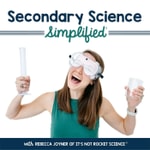In Common – Détails, épisodes et analyse
Détails du podcast
Informations techniques et générales issues du flux RSS du podcast.
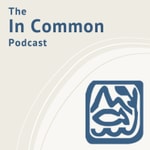
In Common
The In Common Team
Fréquence : 1 épisode/10j. Total Éps: 232

Classements récents
Dernières positions dans les classements Apple Podcasts et Spotify.
Apple Podcasts
🇨🇦 Canada - socialSciences
04/08/2025#79🇨🇦 Canada - socialSciences
03/08/2025#65🇨🇦 Canada - socialSciences
02/08/2025#51🇬🇧 Grande Bretagne - socialSciences
16/06/2025#98🇬🇧 Grande Bretagne - socialSciences
15/06/2025#80🇬🇧 Grande Bretagne - socialSciences
14/06/2025#60🇬🇧 Grande Bretagne - socialSciences
13/06/2025#45🇺🇸 États-Unis - socialSciences
01/05/2025#77🇩🇪 Allemagne - socialSciences
26/04/2025#89🇩🇪 Allemagne - socialSciences
25/04/2025#77
Spotify
Aucun classement récent disponible
Liens partagés entre épisodes et podcasts
Liens présents dans les descriptions d'épisodes et autres podcasts les utilisant également.
See all- https://www.estherperel.com/podcast
82 partages
- https://essnetwork.net/
64 partages
- https://www.skypeascientist.com/
31 partages
- https://twitter.com/find_sust_pod
65 partages
- https://twitter.com/ESS_Network
64 partages
- https://twitter.com/InCommonPod
35 partages
- https://www.patreon.com/incommonpodcast
43 partages
Qualité et score du flux RSS
Évaluation technique de la qualité et de la structure du flux RSS.
See allScore global : 48%
Historique des publications
Répartition mensuelle des publications d'épisodes au fil des années.
FFM #5: Negotiating with Kerrlene Wills
jeudi 15 août 2024 • Durée 54:37
This is the fifth episode in our future fisheries management series, which we are running in collaboration with the Mercatus Center at George Mason University and the Center for Governance and Markets at the University of Pittsburgh.
Today’s guest, Kerrlene Wills, participated in the negotiation process for the 2022 World Trade Organization (WTO) agreement on fishing subsidies as a representative of the nation of Guayana, and has written about the resulting agreement. This is primarily aimed towards curbing subsidies for what is known as illegal, unreported and unregulated (IUU) fishing. It also tried curb the fishing of over-depleted populations, and vessels fishing on the unregulated high seas. A point that Kerrlene makes is that not all subsidies are the same, and therefore should not be subject to the same rules and constraints. The main category that Kerrlene highlights are subsidies that developing countries give to small-scale fishers, which are important for local livelihoods and which don’t necessarily lead to overfishing through overcaptilazition.
Kerrlene is currently the director of Ocean and Climate at the UN Foundation, and she discusses her current work with Michael, in which she is involved in efforts to decarbonize the global transportation industry trough some type of pricing mechanism along the lines of a carbon tax or a cap and trade scheme.
Resources:
Kerrlene’s website at the UN Foundation: https://unfoundation.org/author/kerrlene-wills/
Kerrlene’s article on fisheries subsidies: https://papers.ssrn.com/sol3/papers.cfm?abstract_id=4607279
WTO agreement on fisheries webpage: https://www.wto.org/english/tratop_e/rulesneg_e/fish_e/fish_e.htm
Guardian piece about the WTO agreement: https://www.theguardian.com/environment/2022/jun/21/first-wto-deal-on-fishing-subsidies-hailed-as-historic-despite-big-holes
127: The Healing Power of Virtual Nature with Alex Smalley
lundi 29 juillet 2024 • Durée 01:07:17
In this episode, Michael speaks with Alex Smalley, an expert in Environmental Psychology and researcher at the University of Exeter. Alex’s research program explores, in his words, “the cognitive and emotional impacts of virtual encounters with the natural world”. He has collaborated extensively with the BBC in the UK, including in the creation of a wonderful podcast entitled “The Healing Power of Nature”.
An important take-away from Alex’s work is that virtual experiences with nature can have a positive impact on our well-being, and that this effect is stronger for those with previous experiences with the natural environment itself. This undelies another important lesson, that virtual experiences in nature should be seen as an important complement of but not a substitute for the real world. But with many of us spending most of our time indoors, such a complement can prove to be very important, as Alex explains during the interview.
References:
Alex’s website: https://medicine.exeter.ac.uk/people/profile/index.php?web_id=Alexander_Smalley
Audible podcast: https://www.audible.com/podcast/The-Healing-Power-of-Nature/B0CLW481KM
Smalley, Alexander J., Mathew P. White, Rebecca Ripley, Timothy X. Atack, Eliza Lomas, Mike Sharples, Peter A. Coates, et al. 2022. “Forest 404: Using a BBC Drama Series to Explore the Impact of Nature’s Changing Soundscapes on Human Wellbeing and Behavior.” Global Environmental Change: Human and Policy Dimensions 74 (May): 102497. https://doi.org/10.1016/j.gloenvcha.2022.102497.
Smalley, Alexander J., Mathew P. White, Rebecca Sandiford, Nainita Desai, Chris Watson, Nick Smalley, Janet Tuppen, Laura Sakka, and Lora E. Fleming. 2023. “Soundscapes, Music, and Memories: Exploring the Factors That Influence Emotional Responses to Virtual Nature Content.” Journal of Environmental Psychology 89 (August): 102060. https://doi.org/10.1016/j.jenvp.2023.102060.
121: An end-of-year pod with the editors of the International Journal of the Commons
dimanche 31 décembre 2023 • Durée 42:30
In our final episode of 2023, Michael speaks with the editors of the International Journal of the Commons, which In Common has worked with for the past few years, producing podcast episodes based on articles published there.
Today’s guests are Frank van Laerhoven, Associate Professor at the Copernicus Institute of Sustainable Development at Utrecht University in the Netherlands, Mike Schoon, Associate Professor in the School of Sustainability at Arizona State University, Sergio Villamayor-Tomas, Ramon y Cajal Senior Researcher at the Institute of Environmental Science and Technology in Barcelona, Spain, and the journal's new editor-in-chief, Maria Claudia lopez, Associate Professor in the Department of Community Sustainability at Michigan State University.
Michael and the IJC editors talk about the journal and its role in the commons research community, and how the editors think about issues such as journal impact factor, one of many metrics that seem to be exerting more and more influence over our professional lives and affecting how we think about ourselves individually and collectively. Frank describes his view of the journal as a means for community development, applying the same principles of the commons and commoning that many in the commons community use in their research activities. This is also how we view the role of the In Common Podcast. Thank you for listening to us this year. Feel free to reach out with feedback and suggestions for what you like like to hear moving forward. See you in 2024!
80: Analytics of the Commons with Arun Agrawal
lundi 29 novembre 2021 • Durée 01:04:13
In this episode, Michael and Stefan spoke with Arun Agrawal, the Samuel Trask Dana Professor at the School for Environment and Sustainability at the University of Michigan. Arun has played an important role in the development of the Commons field and the study of the related subjects of conservation and development. They talked about Arun's path to an academic career, his thoughts about the history and current developments of the study of the Commons, and his thoughts on the categories and dichotomies that structure so much of our thinking in this field. They also talked about Arun's professional roles, including being editor-in-chief of World Development and the director of the International Forestry Resources and Institutions (IFRI) program.
Arun's website: http://www.arunagrawal.org/
References:
Agrawal, Arun. 2005. Environmentality: Technologies of Government and the Making of Subjects. Durham, NC: Duke University Press.
Ferraro, Paul J., and Arun Agrawal. 2021. “Synthesizing Evidence in Sustainability Science through Harmonized Experiments: Community Monitoring in Common Pool Resources.” Proceedings of the National Academy of Sciences of the United States of America 118 (29). https://doi.org/10.1073/pnas.2106489118.
79: Fisheries catch shares and indigenous governance with Courtney Carothers
lundi 22 novembre 2021 • Durée 01:10:10
In this episode, Michael spoke with Courtney Carothers, a professor in the college of Fisheries and Oceans at the University of Alaska Fairbanks. They discussed Courtney’s work on "catch share", or individual transferable quota policies in fisheries, indigenous fisheries management systems, and the negative impacts that catch shares have often had on indigenous fishers. Catch shares are a dominant panacea being employed by the U.S. government to manage our shared fisheries resources, and a important critique of them discussed during the interview is the ways in which they prioritize efficiency and profit, lead to rights consolidation, and alienate local users from their traditional livelihoods. Courtney framed this process as being a symptomatic component of the broader processes of forced integration and colonization that has occurred in the U.S. and Canada. They also talked about how collaborative relationships can be built for transdisciplinary work. References:
Carothers, Courtney, and Catherine Chambers. 2012. “Fisheries Privatization and the Remaking of Fishery Systems.” Environment and Society 3 (1). https://doi.org/10.3167/ares.2012.030104.
Donkersloot, Rachel, and Courtney Carothers. 2017. “Chapter 12 - Beyond Privatization: Rethinking Fisheries Stewardship and Conservation in the North Pacific.” In Conservation for the Anthropocene Ocean, edited by Phillip S. Levin and Melissa R. Poe, 253–70. Academic Press. https://doi.org/10.1016/B978-0-12-805375-1.00012-X.
Voo, Lee van der. 2016. The Fish Market: Inside the Big-Money Battle for the Ocean and Your Dinner Plate. St. Martin’s Publishing Group.
Media:
Talk by Dr. Leroy Little Bear on Indigenous Knowledge and Western Science:
https://www.youtube.com/watch?v=gJSJ28eEUjITalks and videos posted by Dr. Seth Macinko: http://sethmacinko.com/videos
Talk by Courtney that provides more depth on some of her ITQ research: https://www.youtube.com/watch?v=5_2qlfDngO4Talk by Jessica Black, Courtney Carothers, and Janessa Esquible on Indigenizing Fisheries: https://www.youtube.com/watch?v=448tr90KUWQ
Planet Money episode that Michael mentions: https://www.npr.org/sections/money/2015/11/04/454698093/episode-661-the-less-deadly-catch Other links:
Survival denied report that Courtney mentions: http://allianceforajustsociety.org/wp-content/uploads/2013/03/Survival-Denied2.pdf
https://www.uaf.edu/ankn/publications/collective-works-of-angay/
078: Collaboration and sustainability transformation with Guido Caniglia
mardi 16 novembre 2021 • Durée 53:16
In this episode, Stefan interviews Guido Caniglia.
Guido is the Scientific Director of the Konrad Lorenz Institute for Evolution and Cognition Research in Austria. Guido’s work aims to shape epistemological and theoretical frameworks that contribute to ongoing scientific developments. Guido has worked in different scientific fields, from evolutionary-developmental biology to sustainability science and higher education for sustainable development. In his research, Guido studies how experimental and theoretical practices contribute to produce evidence and knowledge about complex phenomena of transformation, from evolutionary transitions in the history of life (e.g. the evolution of social behaviors) to purposeful transformations towards sustainability in our contemporary world (e.g. socio-ecological and socio-technical innovations).
Guido previously held a Marie-Curie post-doctoral fellowship in the Faculty of Sustainability at Leuphana University of Lüneburg. He earned a PhD in Philosophy from the University of Florence (Italy) in 2010 while working in different academic communities mostly in Italy, Germany, Spain, and the United States. In January 2016 Guido obtained a second PhD, this time in Biology, from the Center for Biology and Society at Arizona State University (USA). From 2011 to January 2016 he also worked as Post-Doctoral researcher and project manager for the Global Classroom Project, a transnational partnership between Arizona State University and Leuphana University engaging in curriculum reform for higher education for sustainable development.
We talk about how to improve collaborative processes in science, and how to learn to collaborate while collaborating. We also discuss his perspectives on the types of knowledge needed to foster sustainability transformations, and how that knowledge would be best produced, also his perspectives on radical pluralism.
Guido’s Institute page
https://www.kli.ac.at/en/people/kli_team/view/244
KLI homepage
Guido’s Google Scholar profile
https://scholar.google.de/citations?user=NQUM-sMAAAAJ&hl=en&oi=ao
Freeth and Caniglia (2020) - Learning to collaborate while collaborating
https://link.springer.com/article/10.1007/s11625-019-00701-z
Caniglia, G., C. Luederitz, T. von Wirth, I. Fazey, B. Martín-López, K. Hondrila, A. König, H. von Wehrden, N. A. Schäpke, M. Laubichler, D. Lang, and D. J. Abson. 2020. A pluralistic and integrated approach to action-oriented knowledge for sustainability. Nature Sustainability.
Guido’s Twitter
077: Hyper-managed systems with Derek Kauneckis
lundi 8 novembre 2021 • Durée 01:07:28
In this episode, Michael spoke with Derek Kauneckis, an associate professor at the Desert Research institute in Nevada. Derek spoke with Michael about his work on the waste commons as well as technological innovation, particularly with respect to water management. Throughout the program, Derek discussed the relevance of the commons literature in studying the complex, hyper-managed systems that he studies.
Derek's website: https://www.dri.edu/directory/derek-kauneckis/
NI #5: Opening Pandora’s box with Malini Ranganathan
lundi 18 octobre 2021 • Durée 58:52
In this episode, Hita, Maria and Dane were joined by Malini Ranganathan, the Faculty Director of the Antiracist Research and Policy Center and an Associate Professor in the School of International Service at American University. We talked about her journey towards interdisciplinary research, and then discussed how aspects of positionality--like gender and race--influences interdisciplinary research. We ended by hearing about her epic fails.
Malini’s website: https://www.maliniranga.com/
References
Caldeira TP. Peripheral urbanization: Autoconstruction, transversal logics, and politics in cities of the global south. Environment and Planning D: Society and Space. 2017;35(1):3-20. doi:10.1177/0263775816658479
Said, Edward W. Culture and imperialism. Vintage, 2012.
Fraser, Nancy. "What's critical about critical theory? The case of Habermas and gender." New German critique 35 (1985): 97-131.
076: Greening better with Hillary Angelo
lundi 11 octobre 2021 • Durée 55:14
In this episode Michael spoke with Hillary Angelo, a professor of sociology at the University of California, Santa Cruz. Hillary is an historical sociologist who focuses on the relationship between the environment and large-scale transformations in urban contexts. They discussed Hillary's recent book "How Green Became Good: Urbanized Nature and the Making of Cities and Citizens."
Hillary's website: http://www.hillaryangelo.com/
Video that Michael mentions in the conversation: https://www.youtube.com/watch?v=Txg-bPHZBV4&t=2698s
NI#4: Building interdisciplinary collaborations with Georgina Cundill Kemp and Praneeta Mudaliar
lundi 4 octobre 2021 • Durée 01:00:22
In this episode, Hita, Maria and Dane were joined by Georgina Cundill Kemp, Senior Program Specialist at the International Development Research Centre in Canada, and Praneeta Mudaliar, Assistant Professor of Environmental Studies and Science at Ithaca College. We talked about their journeys towards interdisciplinary research, then discussed building interdisciplinary collaborations and the role of trust in collaborative research. We ended by hearing about their epic fails.
Georgina’s website: https://scholar.google.com/citations?user=YlMUPQIAAAAJ&hl
Praneeta’s website: https://www.ithaca.edu/faculty/pmudliar

